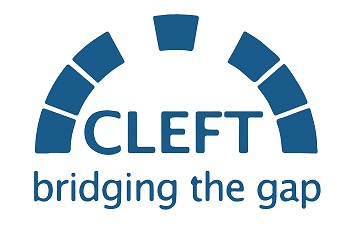Overview of organisation
We are a charity focused on providing permanent, sustainable ways to improve cleft care in both the UK and overseas. Explore our website.
Supporting a variety of projects, our aim is to help improve the lives of people born with clefts in different ways. Broadly speaking, these can be divided into two categories.
Firstly, through supporting the funding of research projects across the UK, we hope to help improve understanding of why some children born with a cleft have poorer outcomes than others, and to add to the understanding of the causes of clefts.
Secondly our projects in other countries aim to support local medical teams to provide long-term treatment and care for less privileged people born with clefts. We also aim to support research projects by teams in those countries.
Aims of the research arm of the organisation
A core principle of CLEFT is to invest in high quality research projects that investigate the causes, treatments, and outcomes of cleft care.
There is still much uncertainty about the best treatment for clefts, and outcomes for some children are far from perfect. There are also limited research funds available from the NHS, the pharmaceutical industry, and other research funding bodies. For a number of reasons cleft research has not been seen as a priority. For the children, adults and families affected by cleft, however, further research is critical if outcomes and quality of life are to continue to improve.
Charitable support has been, and remains, crucial to progressing research to help cleft patients. Increasing knowledge and understanding of clefts is a key component in helping the many health professionals involved to continue to provide the highest quality, long-term care for all people born with clefts.
Our research strategy focuses on supporting high quality research proposals from cleft centres across the UK. These may include clinical trials, laboratory and clinical experimental medicine, hypothesis driven data collection or tissue banking and qualitative studies. Preference will be given to clinical research proposals. All proposals must fit with the philosophy of CLEFT https://www.cleft.org.uk/our-philosophy and have received ethical approval.
In addition to scientific quality, the Research Steering Committee https://www.cleft.org.uk/Pages/ FAQs/Category/research-steering-group considers the following: benefit to those affected by cleft lip and palate, relevance to those affected by cleft lip and palate and their carers, value for money, and likelihood of achieving the aims of answering the research question. As a national charity, the Research Steering Committee will aim to support centres across the UK.
Opportunities to get involved/ How to apply
- Researchers may apply to CLEFT at any time for help with raising funds for a research project. If approved, CLEFT will support fundraising for the project through the CLEFT website. Benefits include claiming Gift Aid and national publicity. Research funds raised will need to be costed by and administered by your local R&D department.
- Researchers may submit an application for funding following a call for proposals. These will be advertised on the CLEFT website.
For further information and/or if you are considering applying for a research grant, please complete the application form which is available on the CLEFT website which you can access by clicking here. Researchers should read the advice page before completing the application.
Contact details
Rona Slator
Chair of Research Steering Committee: rslator@gmail.com
CLEFT
10a Warren Estate
Lordship Road
Writtle, CM1 3WT
info@cleft.org.uk